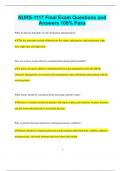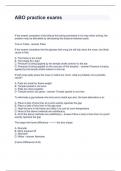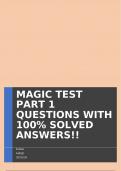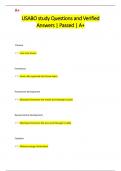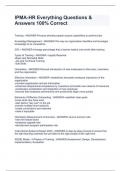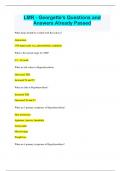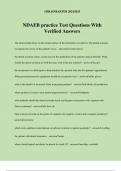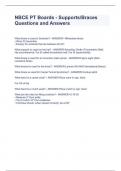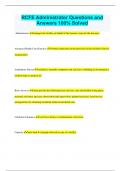Tentamen (uitwerkingen)
NURS-1117 Final Exam Questions and Answers 100% Pass
- Vak
- Instelling
NURS-1117 Final Exam Questions and Answers 100% Pass What are the key principles of safe medication administration? The key principles include following the five rights: right patient, right medication, right dose, right time, and right route. How can a nurse ensure effective communicati...
[Meer zien]
